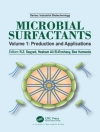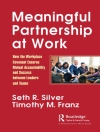This book is an interdisciplinary collaboration between a literary critic and cultural historian, which examines and recovers a radical and still urgent challenge to the industrialisation of cultural tourism from the work of John Ruskin. Ruskin exerted a formative influence on the definition and development of cultural tourism which was probably as significant as that, for example, of his contemporary Thomas Cook. The book assesses Ruskin’s overall influence on the development of national and international tourism in the context of pre-existing expectations about tourism flows and cultural capital and alongside parallel and intersecting trends of the time; examines Ruskin’s contribution to the tourist agenda at all social levels; and discusses Ruskin’s significance for current debates in tourism studies, especially questions of the place of the ‘canon’ of traditional European cultural tourism in a post-modern tourist setting, and the various incarnations of ‘heritage tourism’.
Inhaltsverzeichnis
Chapter One: Introduction: The Joy of Travel
Chapter Two: The Ruskin Moment
Chapter Three: Sightseeing with Ruskin
Chapter Four: The Interpretation of Places
Chapter Five: Ruskin and Tourist Destinations
Chapter Six: Ruskin and Popular Tourism
Chapter Seven: Ruskin and the English Lakes: Brantwood as a Tourist Site
Chapter Eight: Concluding Reflections: Ruskin Against the Market
Über den Autor
John K. Walton is an IKERBASQUE Research Professor in the Department of Contemporary History, University of the Basque Country UPV/ EHU, Bilbao. He has published extensively and internationally on tourism and identity, especially with regard to coastal towns, and edits the Journal of Tourism History.












